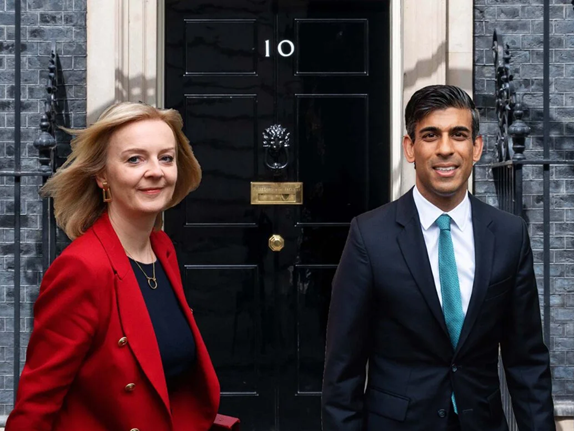

Weekly update - The week that was
This week’s update is courtesy of David Le Cornu in our discretionary investment team in Jersey.
As the British love to discuss the weather I feel obliged to begin by mentioning the record temperatures recorded last week. In Jersey we managed to record our highest temperature since records began (37.9C, or, if you prefer, 102F) as well as our highest minimum overnight temperature 27C. During this week, I was having my second bout of Covid and I’m not sure which wilted more – me or my hydrangeas! At least I wasn’t in Lincolnshire, where they managed 40.3C. Further afield in Europe temperatures were even higher. The media showed the two sides of the hotter than usual weather, alternating between stories of people making the best of the wonderful weather and the tragedies of the wildfires springing up across UK and Europe.
The sweltering temperatures threw many curveballs; whilst I was mildly entertained about train tracks having to be painted white to better withstand the heat and governments feeling the need to advise people to drink water, it was unnerving to hear that the Beznau Nuclear Plant in Switzerland had to decrease production as the river Aare, which it draws water from to cool and discharges water into, was too warm. Climate change strongly suggests that hotter summers are ahead of us and last week highlighted a need for governments and businesses to carefully plan for this eventuality in the years ahead.
One person who was probably particularly hot under the collar this week was Elon Musk. In the Delaware courts Chancellor Kathaleen McCormick ruled that the court case between Twitter and Elon will be heard in October. Twitter is trying to force Elon to complete his public offer to buy Twitter for $54.20 per share. The Tesla and SpaceX co-founder had requested a delay in the hearing until at least February, but has been advised it has to be earlier as it leaves Twitter in an untenable position. He has tried to withdraw from the offer to purchase Twitter based upon their underestimating the number of spam accounts. Many in the media are claiming it’s a classic case of buyer’s regret. Based on the share price of Twitter, investment markets don’t expect Elon to be forced to follow through on his offer to purchase. Elon has also announced this week that the majority of Tesla’s Bitcoin holdings will be sold (at significant loss). Perhaps this is unrelated news or perhaps he is at least a little bit concerned that he may have to buy Twitter.

Things also heated up in British Politics as the Tory candidates for Party Leader were gradually whittled down. There are now two remaining - Rishi Sunak and Liz Truss - and they went head-to-head on television on 25th July to make their case to lead the Tory party. Whilst Rishi got more votes from the membership (137 versus 113), the bookies early odds make Liz Truss favourite to win at 4/7. Rishi is offering more of the same i.e., tackle inflation then offer tax cuts, whereas Liz is offering an emergency budget with sweeping tax cuts and deregulation. The winner will be announced on Monday 5th September when they will become leader of the Conservative Party and the new Prime Minister. The 24th January 2025 is the last date the next UK general election can take place, so, they will have about two years to tackle the cost-of-living crisis, iron out the Brexit wrinkles, explain what the Conservative party stands for and deal with myriad other issues before they go to the public and ask them to renew their mandate to govern.


There is an old stock market saying “sell in May and come back on St Ledgers day” which suggests that the majority of investment returns are generated between October and May and investors may be best served by selling their investments in May and returning in October. The theory behind the saying is that the flow of funds through investment markets are lighter during this part of the year and senior staff may be away on holiday, so, data points or new pieces of information can have an outsized impact on investment markets.
There are many studies around the seasonality of investment markets. My personal belief is that whilst there may be sectors within investment markets that display seasonal trends it is difficult to exploit them, and they are less obvious in broad investment markets. You will be better served by buying and holding a portfolio of well-researched investments and only making changes when you believe the circumstances have changed or you have identified better opportunities. Jumping in and out of investment markets due to the turn of a page on a calendar does not make sense to me as an investment strategy.
Some of the reasons to avoid the temptation to disrupt your portfolio to try to benefit from seasonality traits displayed in investment markets include: -
- Transaction costs: The costs associated with selling and repurchasing a portfolio could easily outweigh the benefit of such action.
- Dividend income: The time you are out of the market could result in you missing dividends.
- The joy of statistics: Depending upon which measure of average you use (mean, mode or median) you will come up with different answers. You can also adjust the data set by choosing which index you use and the date range. This enables you to choose the calculation methodology and data set that makes the best case for the seasonality argument that you wish to present.
- Market differences: The pattern of investment returns will differ markedly between investment markets, so, if there was a seasonal trend in one investment market it may not be replicated in all investment markets. By way of an extreme example during the period December 1989 to May 2003 the Nikkei 225 index fell -79.5% from 38,512 to 7,907 whereas over the same period the S&P500 index more than doubled rising from 765 to 1,556 despite this period including the horrible bear market that followed Y2K (Source: Macrotrends). It’s fair to say any seasonal trends displayed across those markets during that period are likely to have been very different.
- Monthly investment returns: Within equity markets these will differ significantly from year to year. By way of example in recent years the S&P500 index return in US dollars over the month of August has been +3.03% (2018) -1.81% (2019) +7.01% (2020) +2.90% (2021) (Source: Ycharts). This highlights that if you had been out of the S&P500 in August each year since 2018 on the basis of “seasonality” you would not have added value.
- Market subsets: Many investors will hold a small subset of a market rather than the whole market. This may be through actively managed funds or through individual holdings in stocks. The pattern of investment returns from a small subset of an investment market is likely to vary substantially to that of the broader market. Again, to make an extreme example and refer back to the period December 1989 to May 2003, whilst the S&P500 index more than doubled Microsoft rose in value nearly 40 times (Source Macrotrends).
In summary, whilst seasonal trading may sound like a good idea, make sure any data you are basing your trading decisions on is relevant to your portfolio of investments. Ensure that costs and any loss of dividends are not prohibitive then consider the regulatory warning that every investment manager has to publish courtesy of the regulator “Past performance is not a guarantee of future performance the value of your investment may rise or fall in value”. Then, if you must, cross your fingers firmly and place your trades.
May the week ahead be kind to you and your investments.


